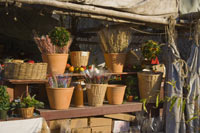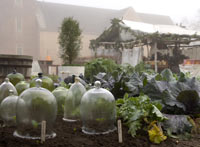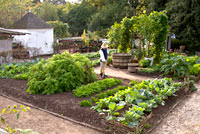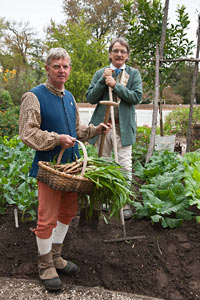Page content
The Colonial Nursery




Starting in March, the Colonial Nursery offers seeds for sale. The seeds represent those plants that would have been found in the gardens of a cross section of 18th century colonial society, and a smattering of other heirloom varieties.
Other goods, such as the cloche to the right, are also available for sale (at the colonial nursery site only) and represent the colonial nursery's intent to develop products that reflect the horticultural practices of the past. The purpose of these cloches is to trap heat at night and to force vegetables to bear earlier than they normally would. The short wattle fences, here helping to keep traffic off the planting beds, would have been used to keep small wild animals out of the beds at night.
Our garden historians are intent on developing an interpretive site that reflects another angle on America's most popular hobby, gardening. Hot beds, cisterns, cloches, and unusual pruning methods are but a couple of the topics Wesley Greene and Donald McKelvey discuss as part of their role as garden historians and colonial nurserymen.
